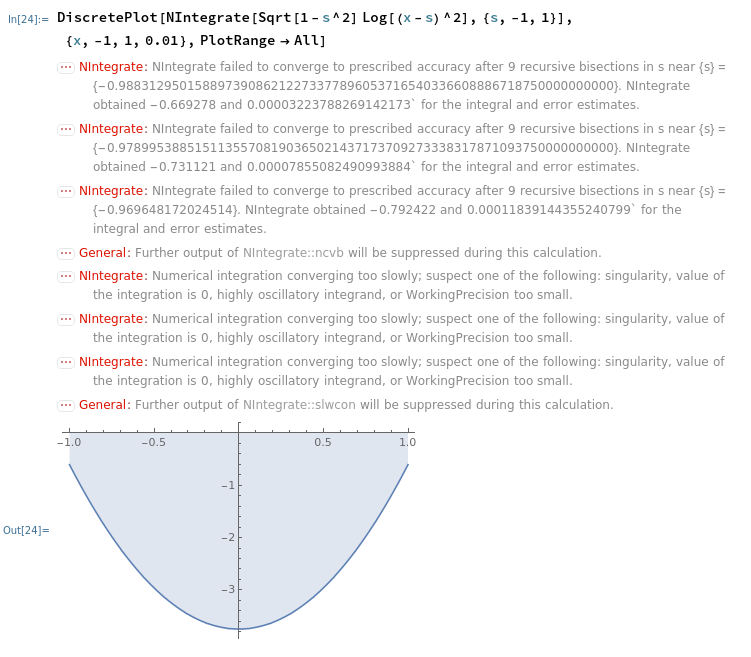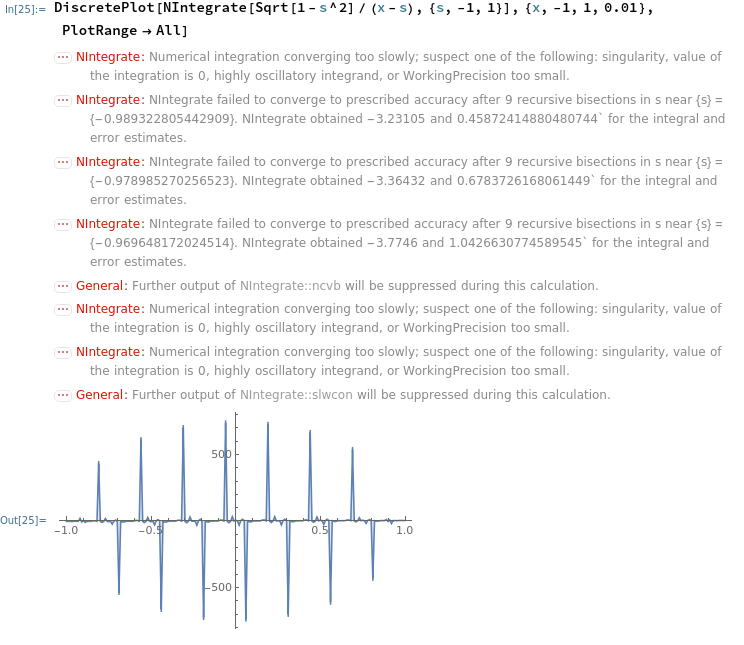Hi everyone,
I have come across this difficult integral today:
int1=Integrate[Sqrt[1 - s^2]/(x - s), {s, -1, 1},
Assumptions -> {-1 < x < 1}]
It's the x derivative of the following function int2, which numerical integration indicates to be finite and continuous (but the numerical integration have some issues too, as shown): 
I have also tried to do numerical integration of the original integral, but the result is weird: 
I know adding "GenerateConditions->False" will help MMA to give an output:
Integrate[Sqrt[1 - s^2]/(x - s), {s, -1, 1},
Assumptions -> {-1 < x < 1}, GenerateConditions -> False]
Gives output Pi x. But since I arbitrarily removed the conditions checking in MMA so I am not sure if this is the proper way doing it.
Is there any better way to evaluate either int1 or int2 in Mathematica?
Thanks in advance!